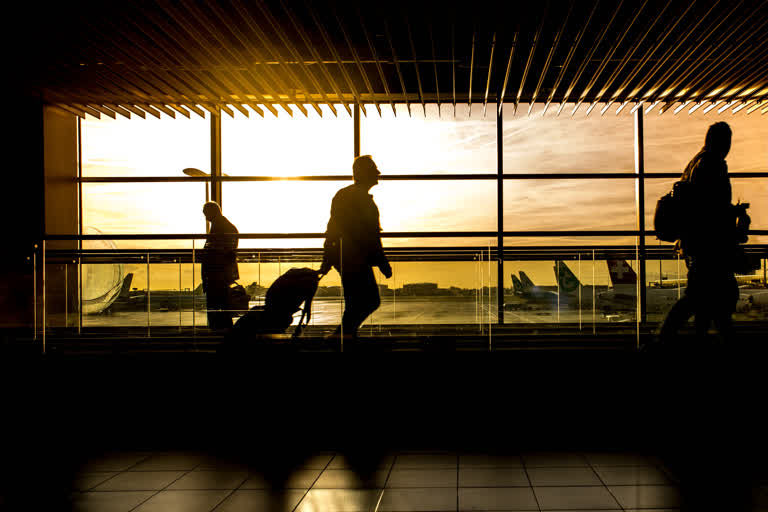London: Onfido's technology of London is often used to sign up to an online bank or rent a car. But now it's offering its remote identity verification platform for a different application proving immunity to COVID-19.
"Any tools that will help get life back to normal and save lives should be used. Naturally, technology is at the heart that, so the vaccines and everything that's been developed is fundamentally driven by research and technology," says co-founder and CEO Husayn Kassai.
"The relevance of us is our focus is historically been verifying people's identities for when they want to sign up to an online bank or for a car rental or those use cases."
"Now that has become relevant because you, sitting at home, being able to prove that you are who you claim to help, as and when a test kit is needed and your results need to be tied to your digital identity."
Onfido's identity verification technology works by analyzing photo ID, then matching it against a person's facial biometrics. It's used by over 1,500 companies worldwide.
The app requires users to move their head and repeat a random combination of numbers. The firm claims its face-matching accuracy error rate is close to one in a million.
In the case of COVID-19, the firm believes a positive antibody test result could be linked to a so-called "digital identity", displayed through a QR code when entering an office, for instance.
Read more: Huge fire engulfs UK industrial estate
"As you leave the home and you're asked to prove that you are immune to the virus, you display a QR code - and that could be red, amber, green, very similar to the Chinese system. But the essential factor would be that your information will be kept private," explains Kassai.
"No one else would be able to see your details. All they would see is that the results of you being potentially immune or not."
In China, smartphone users obtain a coloured "health code" by filling out an electronic form with their identity details, address and whether they have a cough or fever.
They're required to display a 'health code' on their smartphone before boarding a subway or checking into a hotel, for instance.
While some researchers have recommended other governments consider adopting Chinese-style "digital contact tracing", others have expressed concerns.
The World Health Organization (WHO) cautioned against "immunity passports" or "risk-free certificates" in guidance published last month, saying "there is currently no evidence that people who have recovered from COVID-19 and have antibodies are protected from a second infection."
The WHO also warned that inaccurate tests may falsely categorize people, damaging control efforts in the process.
Studies are still underway to determine what antibody level would be needed for immunity. It's also not yet known how long any immunity might last.
Also read: UK queen's message marks muted VE Day celebration
"I think it will have a role. I don't think it is by any means a complete solution because we don't know at the moment how many people, what proportion of the population has had COVID-19 with any degree of certainty," says Paul Hunter, a professor in medicine at the University of East Anglia.
"It is almost certainly going to be the case that you're not immune for life. So, an immunity passport today, based on an antibody test does not guarantee that in three, four, five years, you're still immune."
Onfido says such "digital identities" won't compromise our privacy. No other personal information will be stored, except the immunity test result, the firm says.
But privacy activists are concerned by the prospect of such a large database of the public's medical data.
"I think before terms like immunity certificates start getting thrown around by government, the government has to be much clearer on exactly what's envisaged here and what kind of country they think they're going to create with that kind of massive surveillance system," says Silkie Carlo, director of privacy campaign group Big Brother Watch.
"Much like after 9/11, we are seeing the kind of panic response leading to a renegotiation of values that have been the long protective and very rapid installation of new systems, of surveillance and rules and regulation, restrictions on freedoms that could change the fabric of society as we've known it."
Onfido says it is consulting with "some European governments" regarding the use of its technology.
The firm is also working with a travel tech company to help tourists verify their identity and immunity status when checking into hotels.
Also read: Surrogate-born babies stranded in Ukraine
(With inputs from AP)


